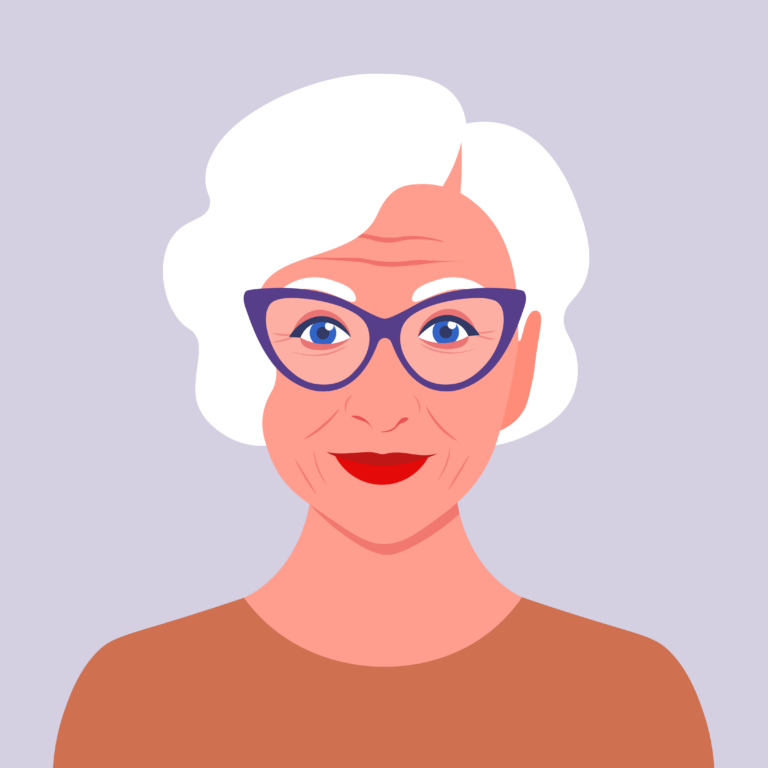Want more on this topic?
Check out these posts:
This size screen isn't yet supported. We're working on that.
An eNewsletter for Aging Magnificently — VOLUME 4
At Lifespark we’re all about helping you stay healthy at home, navigating your health options with confidence, and living a fuller, more independent life. That’s what The A.M. Post is all about, too. Read on — we hope you enjoy!
Before Carl met his Life Manager, he spent lots of time in hospitals and emergency rooms. In addition to his primary care provider, he saw several specialists all of whom focused on the diagnosis they were experts in. This fragmentation led to a disconnected health care experience which often landed him in the urgent care or emergency room. And still, he couldn’t get off the roller coaster of health care crises. As his doctors dealt with each crisis, he’d get to go home, only to bounce back into emergency care with another urgent problem soon after.
He felt on his own. He felt his independence slipping.
Contrary to popular belief, as we age it’s the decline in health, not losing independence that we fear most, although the two go hand in hand. With Carl, he feared managing it all on his own and doing it wrong. That’s when it gets out of control – when seniors have too many people involved in their care without connecting the whole picture.
As the body ages, it’s natural for different things to come up that require attention or monitoring. Carl’s experience is an all-too-common consequence of traditional, reactive care: in and out of the hospital, back and forth to doctors’ appointments, on more and more medications, and a gradual loss of independence.
Like the early warning lights in your car, declining health doesn’t always come out of the blue. There are usually smaller red flags along the way. Just like that light in your car – it doesn’t seem that urgent, so you let it go for a few months until it becomes a check engine light.
It’s also why we often leave out the little red flags, such as that fall two weeks ago, from conversations with our primary care provider or even our own adult children. It’s not an issue until it is. The reality is, talking through those smaller things proactively can actually maintain independence in the long run keeping seniors off the sick-care roller coaster.
According to Dr. Bill Thomas, geriatrician and Lifespark Independence Officer, seniors fear loneliness as they grow old and losing their purpose. What’s interesting is that it is often these fears that contribute to ending up on the health care roller coaster. Feeling lonely can impact your health just as much as smoking 15 packs of cigarettes a day.
“Don’t confuse who you are with what you can do,” said Dr. Thomas. “Who you are is the sum total of all your experiences, knowledge, insights, grievances, and feelings – it’s all of you. As doctors, we are trained to believe that concentrating on a person’s medical history, diagnoses, and treatments is what matters. But the truth is, what matters most is defined by the person, not by their doctor. Quality medical care is important but it’s just one essential element of well-being. The rest,” Dr. Thomas added, “is about focusing on what matters most and shaping your life around that.”
That was Carl’s experience. He was losing hope, he was tired of managing all of the health issues and appointments and was closer to losing himself completely. Instead, he pushed aside his fears and sought help – a Life Manager, typically a registered nurse or occupational therapist, to help him pull his health and life goals together. Someone to help him work with his health problems instead of against them and help him find his way back to the things that give him purpose. Just a few months in and Carl hasn’t had one hospital visit.
We want to age magnificently whatever that means for each of us, but when a slight change in health occurs, we may pause, anxiety may creep in, and we become afraid. Instead of fearing the unknown or trying to manage the fragmented health system alone, reach out and share those small issues with a professional whose role helps you identify what you want, then coordinates services and planning to achieve those goals.
Carl is back riding his bike more consistently, (something he never thought was possible), engaging in his own health, tracking his blood pressure in a notebook, and socializing more because his Life Manager is a call away to talk through anything that comes up. He no longer lives in fear.
His story is a glimmer of hope that aging magnificently is possible when we have the right people on our team making sure that nothing gets in the way of our purpose. And that the only roller coaster you’re riding is the one at the Minnesota State Fair.

Check out these posts:
Age is beauty and aging brings change – interesting posts from around the internet
Sometimes an overwhelmed family member needs a professional guide
Helping families map the coming changes and explore the options before they are even needed.
Making healthy choices right now.

Dear Ethel,
I’m fine on my own but my daughter is worried that I’m not able to care for myself at home. She thinks I need more help, but I don’t want to lose my independence. Should I listen to her?
~ Mom Feeling Frustrated
Dear Mom Feeling Frustrated,
This is a normal response from a daughter who is responding from a place of love. She’s worried because more than likely, she only wants the best for you. Imagine the other way around – I’m sure you too would want the best for her. My question would be to you – what do you want? My recommendation would be to sit down and have a courageous conversation with her and simply listen. There is a happy medium here where you can understand where’s she is coming from but also explain to her how you want to live your life including what your wishes and goals are. Many families would benefit from this kind of transparency.
Hearing her side of the story also sheds light on her perspective. It is possible that she is seeing things that you aren’t or perhaps seeing things that you know are there but you’re not ready to acknowledge. That is completely normal and understandable. There is a balance to living independently and sometimes even a little bit of support goes a long way to maintaining your independence and keeping you in control. But the first step is understanding why she feels this way and ensuring your voice is heard.
Starting now to explore options before a health crisis hits is a smart move. It’s always harder to have these conversations in the midst of a crisis, especially if you are unable to make your wishes known. Even if getting additional help is needed, it is not the end of independence.
Finding the right level of support not only can help you maintain your control and independence longer, but it can also ease her mind and support her being able to balance her life, too. As your health needs change, whenever that may be, you are already ahead of the game and can adapt or take away support as needed. And that’s nothing to feel frustrated or worried about – by talking this through you are establishing control and autonomy. To that I say well done, Mom – your daughter can learn a lot by watching you set the example for how to age magnificently.

Local financial planner sees a strong synergy between Lifespark’s proactive approach to health and well-being and taking a proactive approach to budgeting for future care. But that’s just one of the reasons she recommends Lifespark over other senior service providers.
Melissa Machlitt, CRPS, CRPC and a financial planner has advice to seniors who want to remain independent: start planning for the future before there’s a crisis. “In the event of a stroke or a fall, if there’s no plan in place, decisions are often based on raw emotion, which can be exponentially more expensive for the family,” she said.
To help clients understand the potential risks and benefits of a reactive vs. proactive approach, financial advisors can run “stress tests” which evaluate adverse but plausible scenarios to project the financial outcomes of different decisions. This creates a foundation for trust while also providing legal documents to family members to know how you want your money spent and on what so that they don’t have to worry or take on the financial burden if it’s not documented. Read on for a few more of Melissa’s tips…
Across the country the competition is heating up – but should you get in the game? Apparently if you’re over 65, you should be playing pickleball. Maybe because people think you have more time? Regardless, pickleball is an ageless sport and one where you can compete against the generations – grandkids included.
It’s a sport growing in fascination and excitement, but it also has some great health benefits – social connections for one, and improved hand-eye coordination as well as neuromuscular coordination. And there’s the pure satisfaction of beating your grandkids showing them that age is just a number.
New to the sport? That’s fine – here are a few tips to get you started:
First, you’ll need a paddle and pickleball.
Wear comfortable clothing that you can move easily in. Moisture-wicking or UV protected clothing also helps.
Choose your shoes wisely. Consider tennis shoes or quality shoes that grip well to the court. Wearing the wrong shoes can lead to falls and that would put a damper on things!
Stretch! This is important to avoid injury – start with a few side lunges, hamstring stretch, arm circles, run in place for a few minutes to warm up your legs, move side-to-side, and shoulder stretches.
Learn the rules. Take a few minutes and research the rules of the game so you are familiar – they are slightly different than tennis or even ping pong.
Find a local pickleball league to help you learn the game. Lots of them have beginner leagues perfect for the budding pickler. Check out Hopkins Activity Center, Lifetime Pickle Ball Court in St. Louis Park, or look into Twin Cities Pickleball Leagues to get you started.
Just try it. Before you say this isn’t for me – see if it really is. You may be surprised how much you enjoy it.
When you get comfortable – call (or text) your grandkids and challenge them to a game. Playing games together as a family can create lasting bonds and give you much to discuss over upcoming family get togethers.

There is a difference between a sick-care system versus a complete experience focused on you. Here’s what we mean…